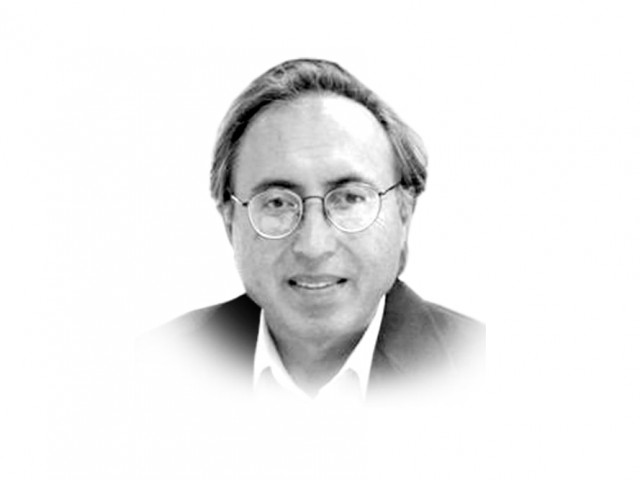Kaptaan, the country’s most popular leader
How Imran Khan will convert his popularity into a political advantage in the next elections. My gut feeling is he will

The first notable change is that the old coalitions of the elite, assembled under two dynastic parties, have lost credibility and the trust and confidence of the larger number of Pakistani citizens. One may wonder why this isn’t reflected in the elections, since the same flock keeps getting elected. An explanation may be that the politics of patronage, at the expense of public interest and the public exchequer, along with the massive illegal wealth that most of the members of assemblies have made, are major factors in determining the outcome of electoral contests in their favour.
Thanks to the broad reach of the electronic media, from cities to villages and hamlets, the true character of the old elite stands exposed. In popular perceptions, the image and reality of the old coalitions as thugs, robber barons and thieves converge. Another factor that will definitely go against them is the pace of relative economic prosperity in the agricultural sector in the rural areas that has produced a very large rural middle class. This class is likely to vote independently of traditional family, clan or caste patterns and think of larger issues of governance, corruptions and who can provide better leadership.
Economic changes in other countries have translated into fresh social and political alignments; consider for example the rise of the Hindu right in India or the Justice and Development Party in Turkey. Both represent the rethinking of old political elites that survived on myths of charismatic leaders and their political legacies.
The second important change is the youth factor in Pakistan, which is not impressed by the quality and character of the political leadership dominating the major or even minor political parties, including the religious parties. They juxtapose Pakistan with the global landscape and see the failings of our traditional ruling elite. The youth in Pakistan is better educated, more enlightened and deeply patriotic, more so than previous generations; they want to get their country back on the rails of progress and modernity. Young people disregard locality, province, region and ethnicity to support Imran Khan, and look toward him as the only hope. This is a big loss for the traditional ruling parties that can only assemble ruffian musclemen in party nurseries, who speak through wall chalking land and guns and cash are doled out to them by party bosses.
The third important change is that, according to a poll, Imran Khan today has emerged as the most popular leader of Pakistan (68 per cent), leaving Mian Nawaz Sharif (63 per cent) and Asif Ali Zardari (11 per cent) miles behind, according to the Pew Research Centre, one of the most credible institutions for global opinion polls.
The question is if and how Imran Khan will convert these changes into a political advantage in the next parliamentary elections. My gut feeling is he will. He has energy, commitment and popular appeal. The great kaptaan presents a very clear agenda of change that no other leader or party can match. Change, credibility and popular appeal will define the new politics of Pakistan, which the kaptaan represents.
Published in The Express Tribune, July 14th, 2011.















COMMENTS
Comments are moderated and generally will be posted if they are on-topic and not abusive.
For more information, please see our Comments FAQ